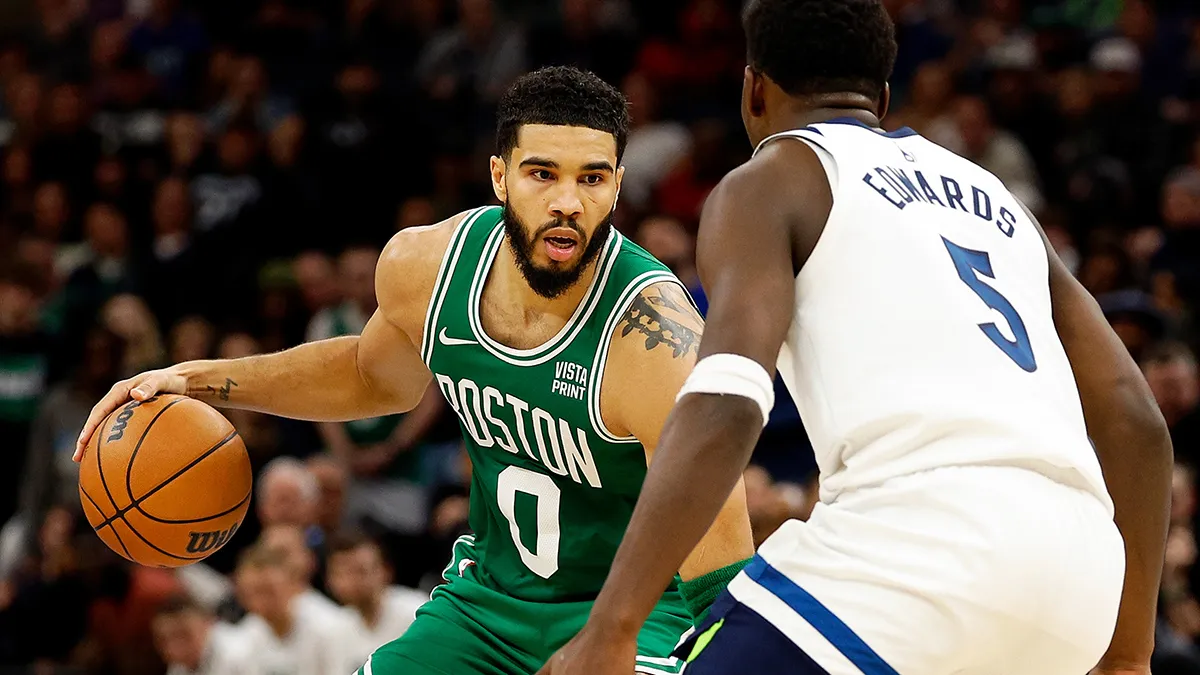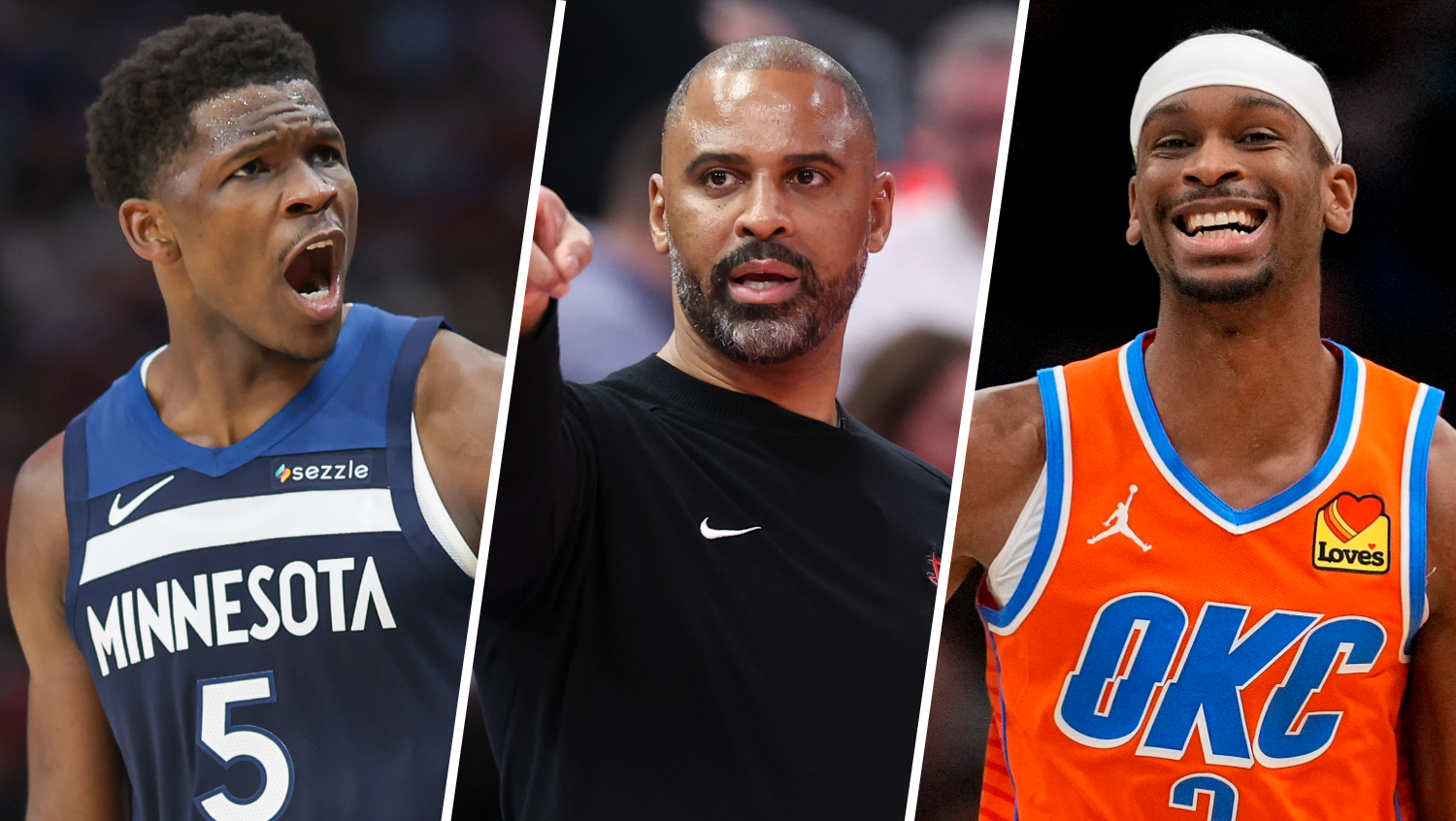
NEW YORKAll we need is Martin Scorsese or Steven Spielberg in a director's chair delivering a Kevin Garnett yell of"Action!"
You've got group of all-star NBA players hastily arranging a clandestine conference call to discuss the possibility of decertifying their union. The camera soon pans away to a former all-star player questioning the negotiating acumen of the union's leaders.
And the backdrop to all this, is a report that the union leader has made a side deal with the owners, an arrangement he denies emphatically both to his constituents as well as publicly.
From there, you see one team owner - a former player who hauled in the largest single season payday (33 million) in league history - leading a small insurgent group better known as hard-liners for their insistence that costs be slashed by any means necessary.
And then there's the big money-making, talent-laden owner who wants to play - badly- and takes to social media in explaining that it's not him - but other owners - slowing up negotiations.
Is it an Academy Award worthy script?
Probably not.
Boston Celtics
Find the latest Boston Celtics news, highlights, analysis and more with NBC Sports Boston.
But it does speak to one of the many mantras the NBA is known for in recent years.
Yes, folks.
The NBA knows drama.
Theatrics aside, both sides understand the serious nature of today's bargaining session which will go far in determining if there is indeed a 2011-2012 NBA season.
After things fell apart nearly six hours of negotiations last week, today's meeting will be the first since then.
Helping bridge the two sides to return to the bargaining table was George Cohen, Director of the Federal Mediation and Conciliation Service. He served as a federal mediator during a three-day stretch of meetings that ended on October 20.
Cohen called Billy Hunter, executive director of the NBAPA, earlier this week to encourage the union and the owners to resume talks soon and that he would be available if they wanted him to be part of the process as a mediator.
Hunter was on board immediately, and the NBA soon followed.
The meeting in which Cohen will preside is very much like the bargaining sessions - in a constant state of uncertainty.
A representative from all 29 NBA teams met this morning among themselves, so it's unclear if any - or all - will attend this afternoon's bargaining session.
As for the union, they had a meeting on Thursday and it's unclear how many of their members will be in attendance at today's bargaining session.
Both sides have stated publicly that they want to get a deal done as soon as possible, so it would make sense for them to try and each limit the number of participants.
In the previous bargaining sessions, the most fruitful meetings have involved smaller groups.
At this point, the fact that they're willing to sit down and talk is seen as a positive.
In fact, that's about the only positive either side can take heading into a meeting that has potential for both sides to bury their differences and iron out a deal, or blow up quickly which would in all likelihood result in more canceled games - and potentially the entire 2011-2012 season.
There was never a point in which these bargaining sessions would have been classified as simple by anyone's definition.
But there's no doubt that a number of factors within the past couple of weeks have complicated matters for both sides.
Several reports indicated that a group of players, led by Boston Celtics forward Paul Pierce, had two conference calls where the idea of decertification was discussed. In fact, the players included famed anti-trust lawyer Len Simon on the conference calls which speaks to how serious they are in at least exploring it as a viable option.
It's hard to imagine that the conference calls weren't in some way connected to the rumors that NBAPA president Derek Fisher had promised the league that he could convince the players union to support a 50-50 split of the basketball-related income, and also that there was a rift between him and Billy Hunter, the NBAPA's executive director.
After a union members-only meeting on Thursday, Hunter and Fisher quickly put the rest - as best they could - that there was a rift between them. And in a letter to his fellow NBA players and to the media, Fisher has denied he met with NBA commissioner David Stern or that he promised he could convince his constituents to accept a 50-50 split of the BRI which in the last CBA, they took home 57 percent of it.
"Usually I wouldn't even dignify absorb media reports with a comment," Fisher wrote. "My loyalty has and always will be with the players. Anyone that questions that or doubts that does not know me, my history, and what I stand for. And quite frankly, how dare anyone call that into question."
Adding fuel to the fire were comments made by former NBA all-star Jerry Stackhouse while appearing on "Jim Rome is Burning" earlier this week.
"Not to say anything against Derek Fisher, it's not that I don't think he's a great guy," Stackhouse said. "But I don't want him negotiating my contract. I want an agent who knows the lingo negotiating my contract. Derek Fisher, he doesn't negotiate his own contract. He has an agent. So why would I want him negotiating something even bigger than his contract? This CBA is something more important to everybody."
Even with the presence of several union attorneys, Stackhouse still doesn't believe that's enough for the union to come out of this with a fair deal.
"Over the course of my career, the last 16 years, it seems like the executive committee is always making concessions," Stackhouse said. "More concessions, more concessions in each Collective Bargaining Agreement and this is no different. I don't think it's ever been a case where it seems like we have any leverage. We need to have more people capable of going toe-to-toe with David Stern and I just don't think players who spend most of their time playing basketball and Billy Hunter are geared to do that."
While that might lead one to believe the owners are sitting pretty, they have their issues among themselves as well.
Michael Jordan is leading the charge among owners to not budge off the 50-50 split of basketball-related income that Stern offered the players last week.
In fact, reports are that Jordan was upset that Stern moved off offering the players just a 47 percent cut of the BRI which would be 10 percentage points, or about 400 million less for the players and into the pockets of owners.
While Jordan certainly has a sizable share of owners who feel the way he does, by no means is it unanimous.
Miami Heat owner Micky Arison took to Twitter to speak his mind, and it wound up in a league-levied fine of 500,000.
"It was more about his timing," Stern told the New York Post. "We're trying very hard to get a deal done with the players, or we were, and we don't need any external distractions to that focus."
A post appeared on Arison's verified account, "Fans provide all the money you're fighting over you greedypigs."
He responded, "Honestly u r barking at the wrong owner."
Someone later posted, "Then can you bark at the other owners? This is RIDICULOUS!!!"
Arison replied, "Now u r making some sense."
But this lockout, now in Day No. 128, makes little sense to those on the outside, looking in.
So far, the negotiations have made for great theatre from both sides.
Whether it's LaValle McGee speaking about there being some player division and immediately being hit with a verbal smack down by Fisher, or Stern missing a bargaining session with "flu-like symptoms" that just so happened to be the day when the bargaining session blow-up was one of the worst - if not the worst - throughout the bargaining session process.
Theatre is cool.
But folks want to see the real show - NBA basketball games - soon.
There's no mistaking that the theatrics of these negotiations has created a cacophony of emotions.
But the league and its players, need to be careful.
The longer this lockout drags on, one of the strongest emotions right now among fans - anger - will soon change into apathy.
And at that point, getting fans back on board to watch the real show - NBA games - will be a tougher sell than either side can imagine.


